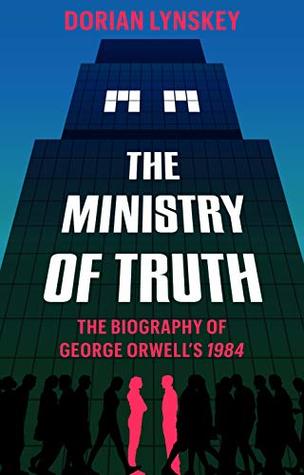More on this book
Community
Kindle Notes & Highlights
Read between
April 25 - May 1, 2020
“The best books, he perceived, are those that tell you what you know already.”
It must be said that Donald Trump is no Big Brother. Nor, despite his revival of such toxic phrases as “America First” and “enemy of the people,” is he simply a throwback to the 1930s. He has the cruelty and power hunger of a dictator but not the discipline, intellect or ideology. A more apt comparison would be Buzz Windrip, the oafish populist from Sinclair Lewis’s It Can’t Happen Here, or, in the real world, Joseph McCarthy, a demagogue who displayed comparable levels of narcissism, dishonesty, resentment and crude ambition, and a similarly uncanny ability to make journalists dance to his
...more
Trump’s slogan “Make America Great Again” calls to mind Orwell’s reference to “hundred percent Americanism.” The president meets most of the criteria of Orwell’s 1944 definition of fascism: “something cruel, unscrupulous, arrogant, obscurantist, anti-liberal and anti-working-class . . . almost any English person would accept ‘bully’ as a synonym for ‘Fascist.’ ”
During the two decades preceding the 2016 election, groups such as climate change deniers, anti-vaxxers, creationists, birthers, 9/11 truthers and conspiracy theorists of every variety all demonstrated a fierce disregard for factual evidence that contradicted their beliefs, often reinforced by right-wing media outlets such as Fox News and talk radio, and by online echo chambers. This increasingly popular mindset was a toxic cocktail of cynicism and credulity. People who were proudly sceptical of CNN or The New York Times were perfectly happy to take unsourced Facebook posts and quack science
...more
During the 2016 election campaign, the Internet Research Agency, a Russian troll farm, flooded social media with fake news stories designed to generate confusion, cynicism and division. One of the agency’s popular memes read: “The People Believe What the Media Tells Them They Believe: George Orwell.” The quotation was fabricated. Orwell never used the phrase the media, which did not enter common usage until after his death, and he would never have made such a simplistic claim. The irony of Russian propagandists putting words into Orwell’s mouth in order to hijack his prestige as a truth-teller
...more
It is truly Orwellian that the phrase “fake news” has been turned on its head by Trump and his fellow authoritarians to describe real news that is not to their liking, while flagrant lies become “alternative facts.”
During a speech in July 2018, Trump himself said: “What you’re seeing and what you’re reading is not what’s happening.” Another line from Nineteen Eighty-Four went viral—a real one this time: “The party told you to reject the evidence of your eyes and ears. It was their final, most essential command.”
Nineteen Eighty-Four was Orwell’s final, essential contribution to that collective effort. In the statement he dictated to Fredric Warburg from his bed in Cranham sanatorium during his final months, he explained the fundamental reason why he wrote it: not to bind our wills but to strengthen them. “The moral to be drawn from this dangerous nightmare situation is a simple one. Don’t let it happen. It depends on you.”


